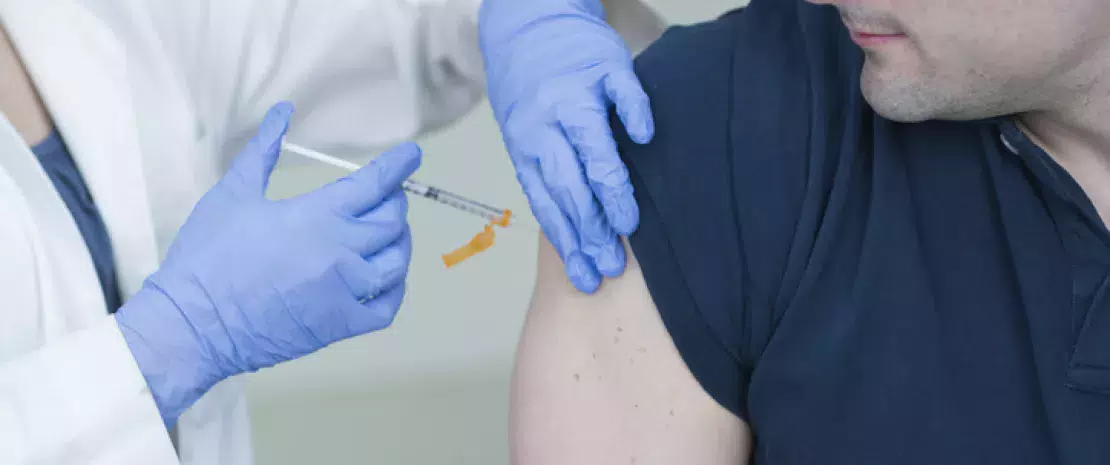Vaccination after antibiotic therapy: effect on immunity and role of the microbiota
In individuals with low pre-vaccination immunity against influenza*, taking antibiotics leads to gut dysbiosis which disrupts the immune response to the flu vaccine. A team of scientists tried to find out why.
Lay public section
Find here your dedicated section
Sources
This article is based on scientific information

About this article
Several studies have documented the pivotal role of the gut microbiota in immunity, although clinical evidence remains limited. Better understanding the underlying mechanisms is crucial in terms of public health, especially to develop therapies targeting the microbiota in cases of immune disorders. In this context and based on the observation that vaccine efficacy varies as much as the gut microbiota of individuals on the different parts of the world, researchers focused on the impact of antibiotics on the immune response to vaccination.
Effect of antibiotics on vaccination
To this end, the scientists studied two populations with different levels of anti-flu antibodies at baseline. In the first population, 22 healthy adults were vaccinated against seasonal influenza (vaccine containing 3 strains of attenuated viruses); and 3 days before vaccination, half of them started an antibiotic treatment lasting 5 days. As expected, antibiotics deeply and durably impacted the composition of the gut microbiota. But contrary to the researchers’ hypothesis, the production of antibodies in response to vaccination was not affected by the use of antibiotics. An effect was only observed in the second cohort composed by 11 subjects with no significant pre-existing immunity against influenza ( (sidenote: As proven by low levels of antibodies (1st cohort: serum levels < 320 for at least 2 out of the 3 strains included in the vaccine; 2nd cohort: serum levels ≤ 320 for the 3 strains contained in the vaccine) ) ): antibiotics produced a decrease in the production of IgG1 and IgA antibodies against the H1N1 virus strain. Broad-spectrum antibiotics thus could, in some cases, disrupt the immune response to vaccination.
Bile acids: inflammation messengers
Researchers also observed that changes induced by vaccination at the blood metabolites level were different between the group who received antibiotics and the control group, especially for substances derived from the metabolism of bile acids. It should be reminded that the microbiota transforms primary bile acids secreted by the gallbladder and supplied to the intestines, into secondary bile acids. They are then partly reabsorbed. But in subjects who received an antibiotic therapy, an increase in blood levels of primary bile acids and a major decrease in secondary bile acids were observed. Antibiotic therapy could even reduce by a factor of 1,000 the most important of them, i.e. lithocholic acid. This decrease in secondary bile acids was strongly correlated to the increase of pro-inflammatory molecules. This suggests that a change in the ratio of bile acids induced by antibiotic therapy could be one of the mechanisms regulating the inflammatory response.
Two different response pathways
Is there a link between the pathway modulating the production of antibodies and that involving bile acids and inflammation? According to the researchers there is no such link: they mapped all the different signaling pathways, from the microbiota disruption following the administration of antibiotics, to the changes in blood metabolites; and they concluded that the two pathways are independent. In conclusion, the profound disruption of the microbiota induced by the use of antibiotics could modulate the immune function through two distinct mechanisms: by directly interacting with immune cells, or in a systemic way, by modulating the production of some key metabolites.






